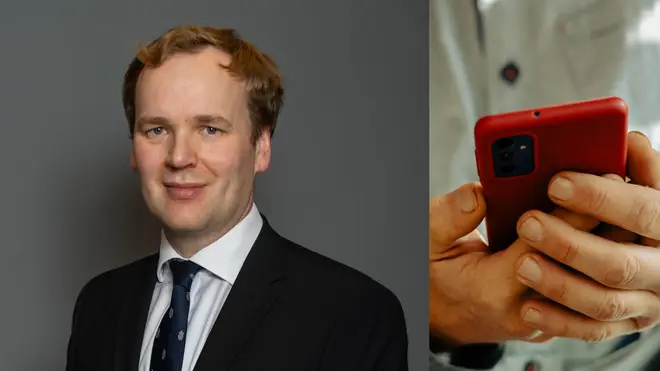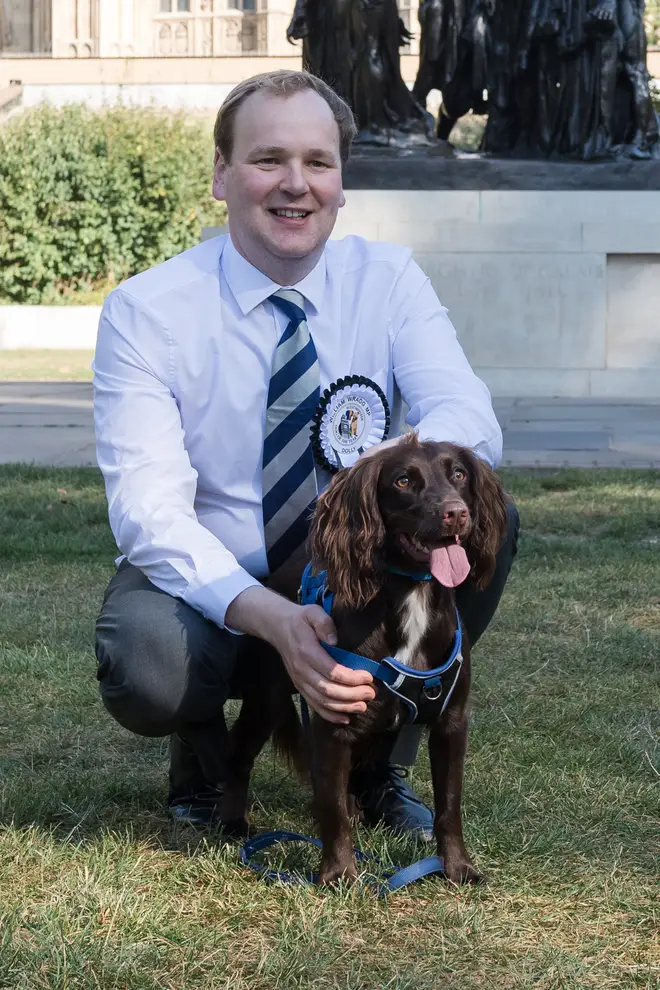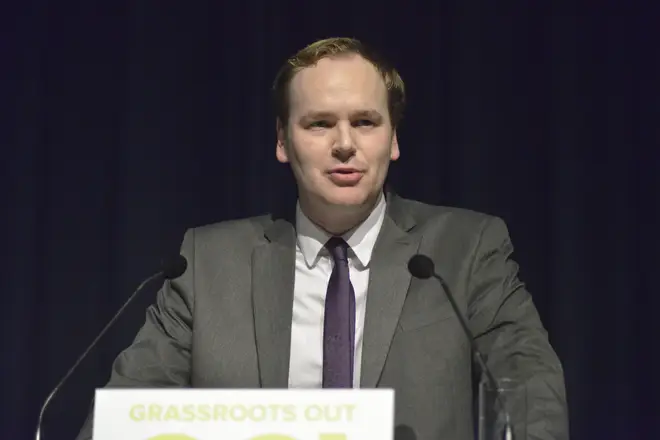
Ben Kentish 7am - 10am
4 April 2024, 21:42 | Updated: 4 April 2024, 21:47

A senior Conservative MP says he is "mortified" after admitting his involvement in a honeytrap sexting scandal targeting a minister and fellow MPs.
William Wragg, told The Times he handed over the personal phone numbers of colleagues to a man he met on Grindr, a gay dating app.
The chairman of a Commons select committee and vice-chairman of the 1922 committee admitted he shared the details after sending intimate pictures of himself to the user.
Wragg, 36, said he was “scared” that the man “had compromising things on me”.

The colleagues — which included several MPs, members of their staff and a political journalist — were sent unsolicited flirtatious messages from senders calling themselves “Charlie” or “Abi”.
It is understood two MPs responded by sending an explicit picture of themselves.
The scandal, which has raised concerns over the vulnerability of MPs to cyberattacks, is now the subject of an investigation by Leicestershire police, which has received a complaint of “malicious communications” against a parliamentarian.
Experts have said it could be an incident of “spearphishing”, a technique used to gather highly personalised, sensitive or compromising material.
Wragg was approached after speaking to victims who believed he was involved.
The Hazel Grove MP, who is gay, said he was “mortified” and apologised for his “weakness”.
“They had compromising things on me. They wouldn’t leave me alone. They would ask for people. I gave them some numbers, not all of them. I told him to stop. He’s manipulated me and now I’ve hurt other people.

“I got chatting to a guy on an app and we exchanged pictures. We were meant to meet up for drinks, but then didn’t. Then he started asking for numbers of people. I was worried because he had stuff on me. He gave me a WhatsApp number, which doesn’t work now.
“I’ve hurt people by being weak. I was scared. I’m mortified. I’m so sorry that my weakness has caused other people hurt" he told The Times.
On Wednesday Politico reported MPs had been sent texts from an unknown number. The sender would explain that they had met years ago, usually in one of the parliamentary bars.
Read more: Civil servants threaten to stop work over arms sales to Israel
The person identified themselves as either “Charlie” or “Abi”, from a phone number with a profile picture featuring a man in a white t-shirt having a meal with a woman in a blue and white dress.
To the male MPs targeted, “Charlie” also provided another picture featuring him dressed in a white T-shirt in what looks like a bar.
Early in the conversation, men who were targeted by "Charlie" received an explicit picture and were requested to reciprocate.
Many blocked “Charlie” or did not reply. However, The Times understands two MPs did respond by sending an explicit picture of themselves.
“Charlie” said he used to work in Parliament and boasted about having had sex with several Conservative and Labour MPs.
When asked by one MP on who he worked for, “Charlie” said he had done an internship with Wragg in 2022. Wragg denied “Charlie” had ever worked for him.

Wragg’s connection to the scandal emerged on Wednesday as MPs confided in each other about their suspicions.
Wragg had already been considering a future beyond parliament, having declared his decision to step down as an MP after the upcoming election. Should there be complaints directed to Conservative whips, he might encounter the possibility of being compelled to serve as an independent. With Parliament currently in recess, Wragg won't be returning to Westminster for almost two weeks.
Leicestershire Police said officers were “investigating a report of malicious communications after a number of unsolicited messages were sent to a Leicestershire MP last month”.
Sir Lindsay Hoyle, the Commons speaker, has written to all MPs and staff to tell them that the parliamentary security department was investigating.
Read more: Robbery mastermind who hid from justice for 17 years found guilty of murdering PC Sharon Beshenivsky
Anyone with knowledge of the messages was urged to “come forward … and share the details and any concerns”.
“They were reported to police on Tuesday 19 March. Inquiries are currently ongoing.”
Parliamentary authorities will “work closely with partners in government to analyse and understand the nature of these messages and any related security risk” he said.
Security guidance for mobile phones and wider cyber security advice was also circulated.
A parliamentary spokesperson said: “Parliament takes security extremely seriously and works closely with government in response to such incidents.
"We provide members and staff with tailored advice, making them aware of security risks and how to manage their digital safety.
"We are encouraging anyone affected who has concerns to contact the Parliamentary Security Department.”